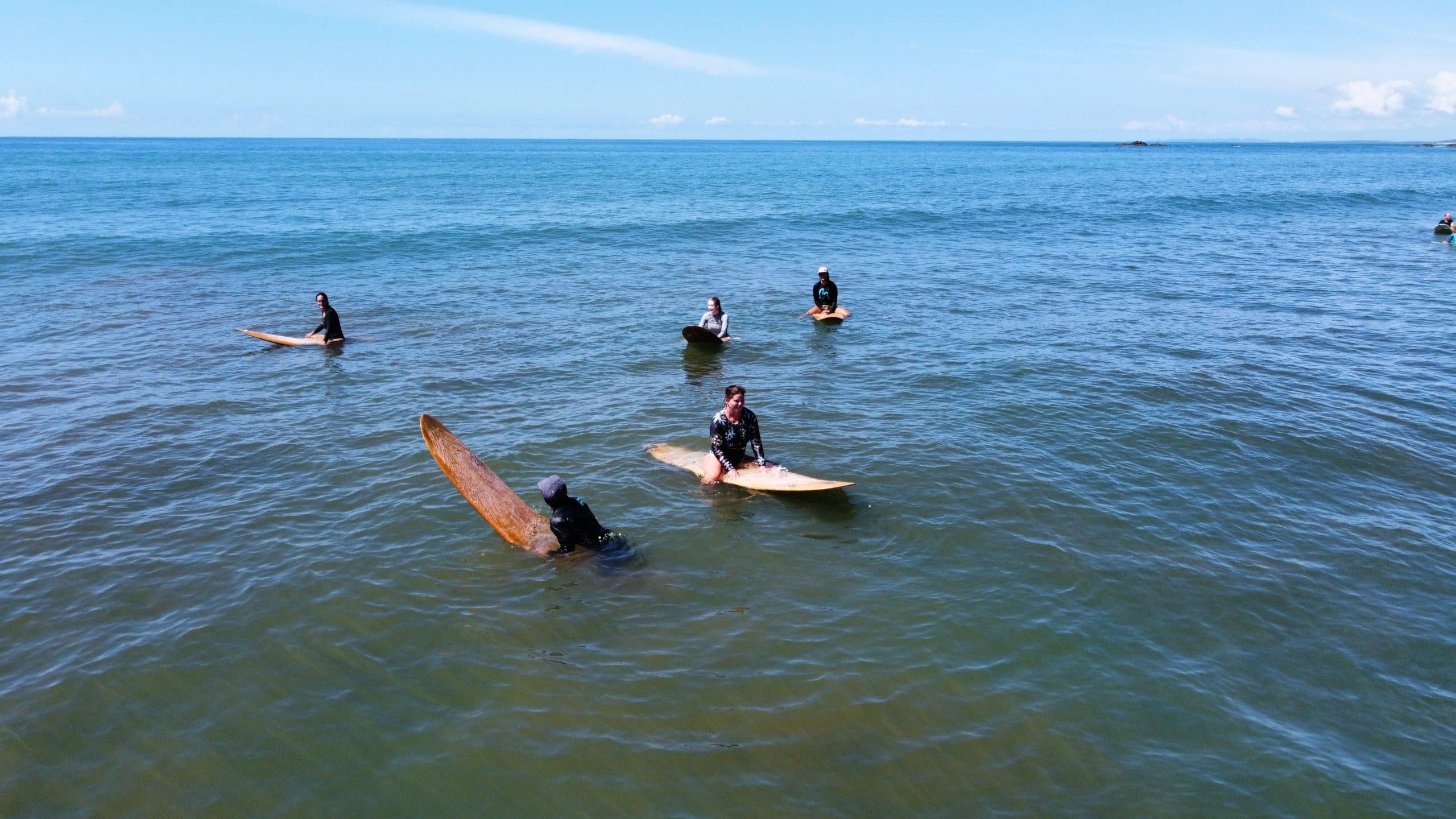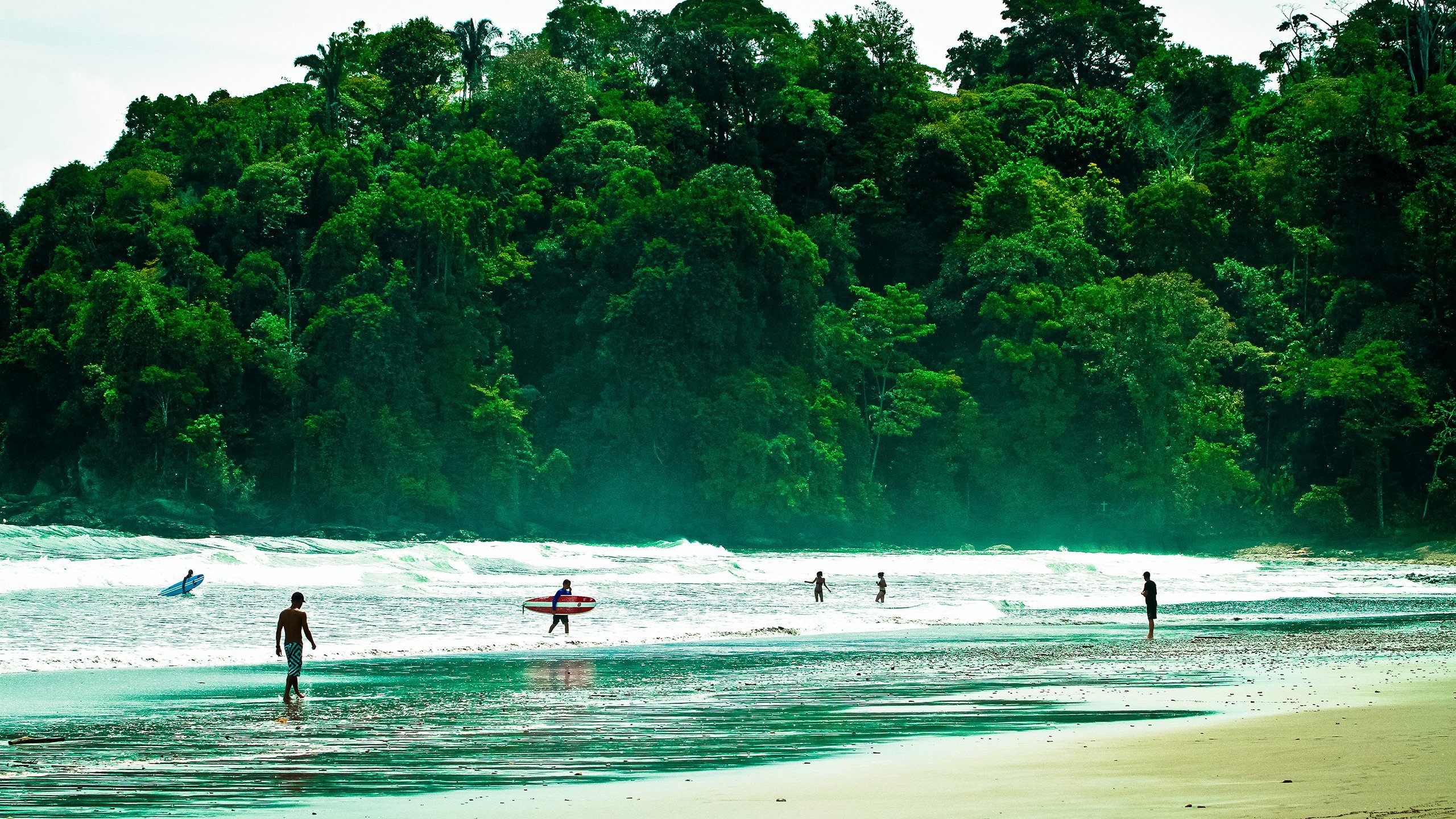You stand up. The board wobbles. For a second, you’re flying. And then, splash, you’re underwater, laughing, salty, and more alive than ever.
Ask any surfer and they’ll tell you: surfing isn’t just a sport, it’s a feeling. But here’s the cool part: science totally backs that feeling up.
Every time you catch a wave, your brain gets a hit of dopamine, that’s the same feel-good chemical that makes you crave another ride and leaves you grinning ear to ear. Plus, all that balancing, paddling, and popping up on the board is like a workout for your brain, helping it build new pathways that keep you sharp and focused.
So whether you’re 18 or 65, learning to surf isn’t just a fun adventure, it’s a total brain upgrade. And that’s something worth paddling out for.
Your Brain Lights Up Like a Firework Show
Surfing = A Full Brain Workout
Surfing is one of the rare activities that requires almost every part of your brain to work in sync:
- Visual cortex scans for waves
- Motor cortex tells your body when to paddle, pop up, and adjust
- Cerebellum handles balance and coordination
- Prefrontal cortex makes split-second decisions
- Amygdala kicks in for excitement, fear, and thrill
- Hippocampus stores new movement patterns and learns timing
It’s like lighting up your brain’s entire control board, and over time, that “wiring” gets stronger.
So if you’ve ever felt “sharper” or more mentally clear after a few days at a surf retreat, you’re not imagining it. That’s neuroplasticity!
Dopamine: Your New Favorite Surf Buddy

One Wave = One Natural High
Let’s talk about dopamine, the brain’s reward chemical. It spikes when we experience something pleasurable, new, or exciting.
And guess what’s really good at producing dopamine?
Catching a wave.
Catching a wave, even a small one, triggers a powerful rush of dopamine, the brain’s feel-good, reward-driven chemical. Those seemingly simple wins in surfing, like finally popping up or riding a wave just five seconds longer than before, flood your system with a surge of motivation, joy, focus, and confidence. It’s a natural high that leaves you wanting more, turning each wave into an opportunity not just for fun, but for a genuine neurological boost.
It’s the same reason surfing becomes addictive (in a good way). Your brain starts chasing that next hit of “I did it!”
And unlike scrolling social media, this is a natural, healthy way to train your brain’s reward system to seek real-world wins.
You Learn to Love Failing (Yes, Really)
Surfing Builds Resilience, Not Perfection
Here’s the deal: you’re going to wipe out, a lot, especially in the beginning. But something magical happens when you fall off a board twenty times and still paddle back out. Your brain starts to rewire its relationship with failure, gradually learning to normalize imperfection, reduce fear-based responses, release stress hormones like cortisol less often, and build a stronger growth mindset. Instead of seeing mistakes as threats or triggers for shame, you begin to view them as part of the journey. That’s why so many guests at Kalon say, “I wish I’d learned this in school.” Surfing teaches you how to keep showing up, gracefully and joyfully, no matter how many times you fall.
Nature = Mental Reset

Blue Space = Brain Space
Ever heard of “blue mind science”? It’s a real thing.
Being near the ocean has been shown to:
- Reduce cortisol (the stress hormone)
- Lower blood pressure
- Improve sleep quality
- Increase creativity and problem-solving
Combine that with the physical joy of surfing, and you’ve got a potent mix of calm and clarity.
It’s no wonder so many people experience major “aha” moments in the water. It’s not just the waves, it’s your brain returning to its natural rhythm.
It’s Like Meditation in Motion
The Ultimate Flow State
Surfing demands complete presence. You can’t check your phone while paddling. You can’t ruminate on work drama when a wave is forming. You have to be here, now.
That’s the definition of flow state, a psychological sweet spot where time slows down, self-doubt disappears, and you’re fully immersed in what you’re doing.
Neuroscientists have found that flow:
- Increases learning speed
- Boosts performance
- Enhances mood
- Improves creativity and memory retention
At Kalon, we see guests enter flow for the first time after just a couple of surf sessions, and many say it’s the most mentally clear they’ve felt in years.
Learning to Surf Creates “Beginner’s Brain”
And That’s a Very Good Thing
When’s the last time you learned something totally new?
As adults, we tend to stick to what we know. But when you learn to surf, you reactivate your “beginner’s brain”, the neurological state of curiosity, humility, and fast learning that kids thrive in.
That means:
- You take in information faster
- You build confidence through progress
- You stop needing to “look perfect” and start enjoying the process
This mindset shift doesn’t just help your surfing, it translates to work, relationships, and creative projects long after you’ve left Costa Rica.
Social Bonds Strengthen Your Brain, Too
Surfing is a Shared Experience
Neuroscience shows that strong social connections improve brain health, especially when those connections are built on shared experiences and emotional support.
These moments release oxytocin, another powerful brain chemical associated with bonding and belonging.
So when you leave the retreat with new friends or deeper connections, it’s not just social, it’s neurological wellness.
Want a brain boost that’s better than any app or podcast? Book your all-inclusive surf retreat at Kalon Surf and feel the transformation, mind, body, and board. Because sometimes, the best way to reset your brain… is to ride a wave.



